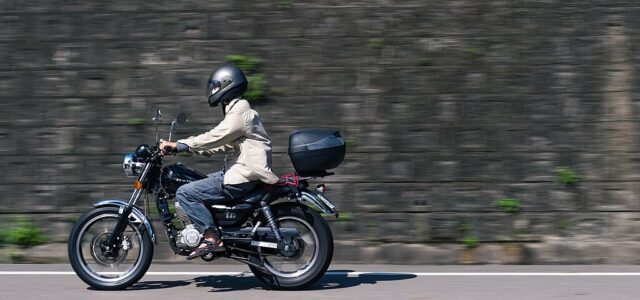All new motorcycles in Singapore to require Anti-lock Braking System from April 2027
all-new-motorcycles-in-singapore-to-require-anti-lock-braking-system-from-april-2027
#motorcycles #Singapore #require #Antilock #Braking #System #April,
SINGAPORE: For motorcyclists in Singapore, every ride comes with a level of risk that car drivers rarely experience. Two wheels mean less stability, and when it comes to sudden braking, whether to avoid a careless pedestrian or a car that swerves without signalling, control can mean the difference between a close call and a crash.
That is why the Land Transport Authority’s (LTA) announcement this week, on Sept 16, has struck a chord in the riding community. From April 1, 2027, all newly registered motorcycles in Singapore must come equipped with Anti-lock Braking Systems (ABS). The rule will not apply to existing bikes on the road, but it marks a turning point in how Singapore views motorcycle safety. Significantly, the nation will also become the first in ASEAN to mandate ABS for every new motorcycle.
Why ABS matters to riders
For those unfamiliar with the technology, ABS works by preventing a bike’s wheels from locking up during emergency or hard braking. Instead of the skid that riders dread, ABS helps maintain stability, giving the motorcyclist a better chance of staying upright.
The statistics are sobering. International studies show motorcycles with ABS have a 37% lower fatal crash rate compared to those without. The urgency becomes clearer when set against local numbers. According to the Traffic Police’s 2024 Road Traffic Situation report cited by the LTA, fatal accidents involving motorcyclists rose by 20.8%, with deaths of motorcyclists and pillion riders climbing by 25% compared to 2023.
For the average rider, that is not just data; it is a reflection of the dangers they face every day on expressways, in traffic-heavy town centres, or even while weaving through narrow roads. ABS will not make motorcycles invincible, but many riders see it as another crucial layer of protection in a landscape that is growing riskier.
What this means for Singapore riders
As of the end of 2024, about half of the motorcycles on local roads already have ABS. Riders with older machines will not be required to retrofit their bikes, but for those considering a purchase in the next few years, the industry will go through an 18-month transition period to clear existing non-ABS stock.
For some, this could mean waiting a little longer or paying a bit more for an ABS-equipped model. However, many motorcyclists argue that safety is worth the investment because, after all, motorcycling in Singapore has always been about balancing passion and practicality, and ABS promises to tilt that balance a little more towards protection.
A first for the region
Singapore’s decision to lead ASEAN with this mandate reflects more than just policy. It sends a message that the safety of riders and passengers is non-negotiable; in a region where motorcycles are a lifeline for millions, from daily commutes to delivery work, this move could set the tone for neighbouring countries to follow.
For now, local motorcyclists can be happy to know that the machines rolling onto Singapore’s roads from 2027 onwards will be built with their safety in mind. While no technology can replace vigilance and skill, ABS may just give riders that crucial edge when it matters most.
Read also: SBS Transit rolls out AI-driven tyre checks, launches new career track to upskill bus technicians
